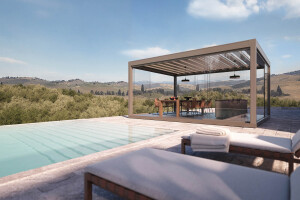The plot is located on the grounds of a former brick factory, along a main road. To reflect its industrial history and counterbalance the busy road the façade is clad with profiled Corten steel. Municipality rules dictate that the rowhouse’s façade should follow the straight plot alignment. In order to achieve a diverse and layered appearance the façade is meticulously detailed, creating as much depth as possible. The Corten steel profile depth is maximized, windows are pushed inwards and accentuated by deep Corten steel frames, creating a beautiful play of light and shadow.
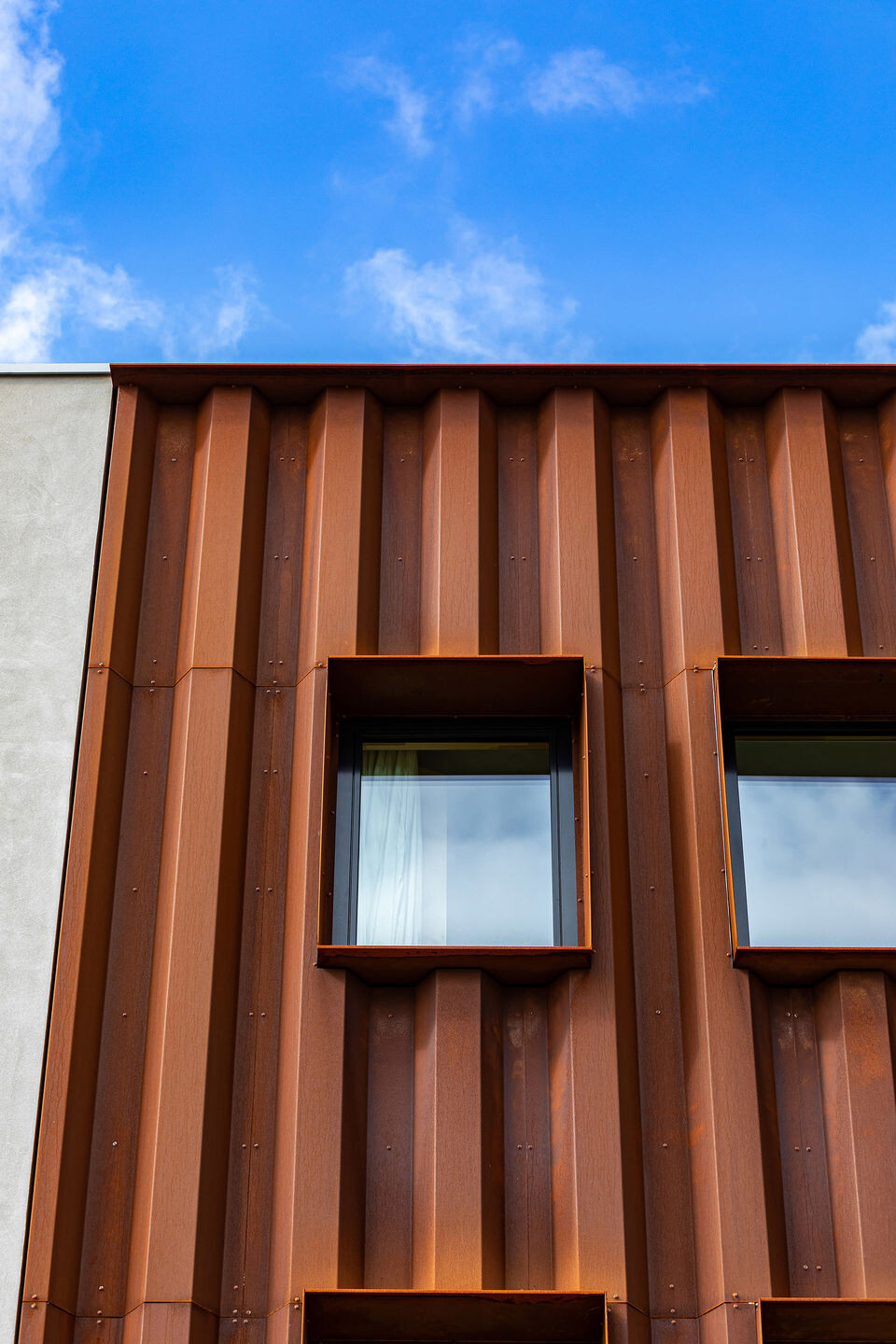
On the garden side a softer approach is chosen and a secluded inner world is created. The back façade is a composition of surfaces and volumes that enfolds an intimate patio garden. White plasterwork adds to its abstract feel. Tall windows open out onto the patio, offering courtyard views and allowing natural light to flood the house. The annex accommodates the entrance and a loggia where the owners can enjoy the evening sun in any season. It links the house to a studio apartment that will be built in the backyard later this year.

In the interior light, spaciousness and tranquility are key. The limited material palette of wood, stucco, steel and concrete creates balance and serenity. The solid timber interior walls and first floor are left visible. They define space and their warm tones set the atmosphere. Large voids behind the façades interconnect the lower two levels, allowing light and space to flow freely. The bedrooms and bathroom are on the more secluded top floor, overlooking Amsterdam.
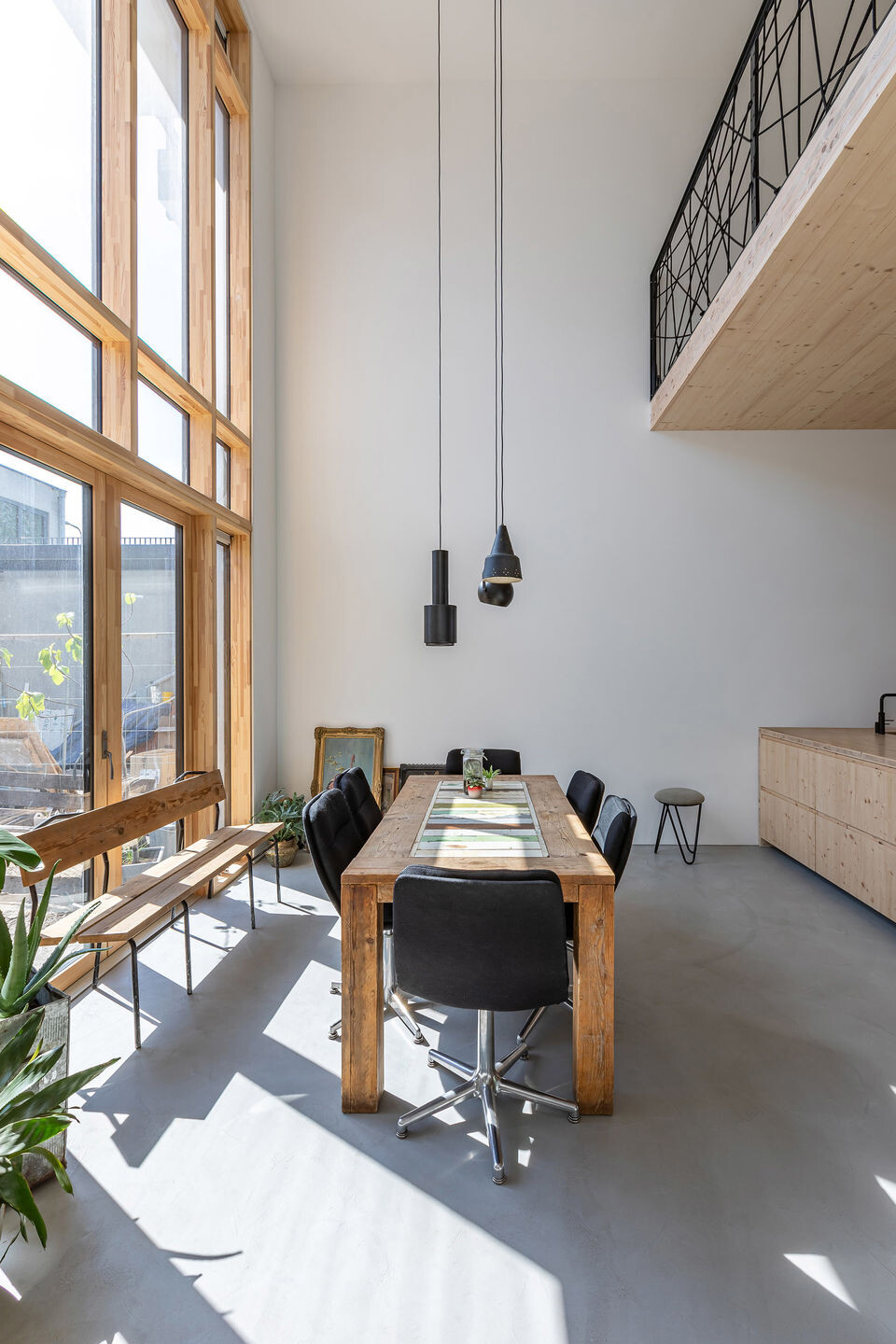
The floor plans are designed to adapt to the family’s changing needs. On the ground and first floor a two-storey office space can be created, separated from the living areas by large steel and glass walls. Furthermore, the building’s structure and floor plan are prepared to add a two-storey penthouse with a private entrance. When the owners’ parents grow older, they will be able to provide a home for them and take care of them, while preserving the privacy of their own home.
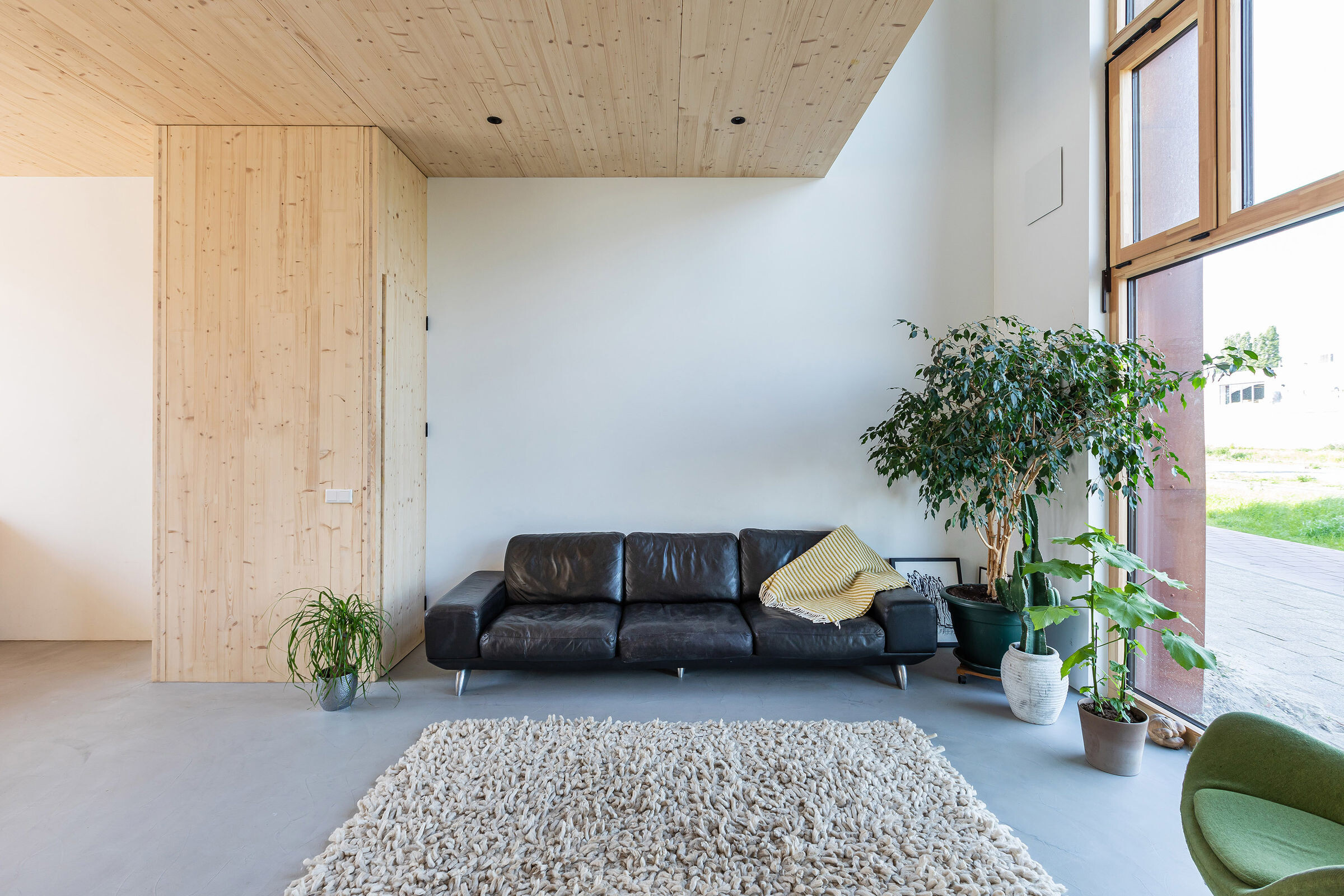
The house is very eco-friendly. Biobased, re-usable and low-emission materials are used whenever possible. The facades are timber frames filled with cellulose insulation. All other walls and floors are Cross Laminated Timber (CLT). To ensure a healthy indoor climate the construction is vapour permeable. Passive solar energy is used in the south façade. Summer heat is blocked by the overhang and by trees in the garden, while in winter, when the sun is low and the trees have no leaves, sunlight penetrates deeply into the living room. Next spring a green roof will be planted on the annex, which will absorb rainwater and carbon dioxide, increase biodiversity and help to lower urban air temperatures.
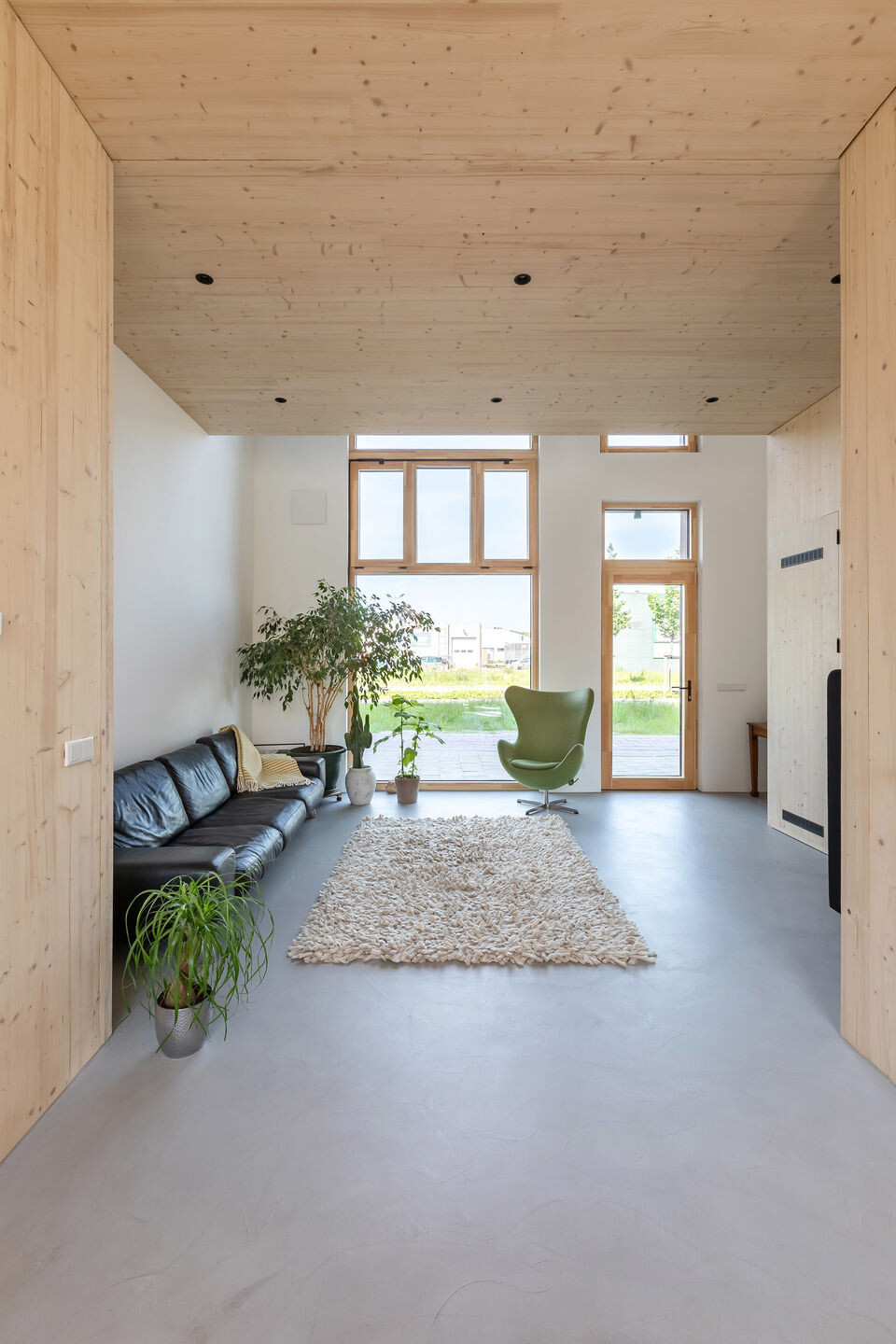
The house was realized on an extremely limited budget, in a very short construction period. The building shell was prefabricated in Latvia and assembled on site in only six days. Total construction time was six months.































